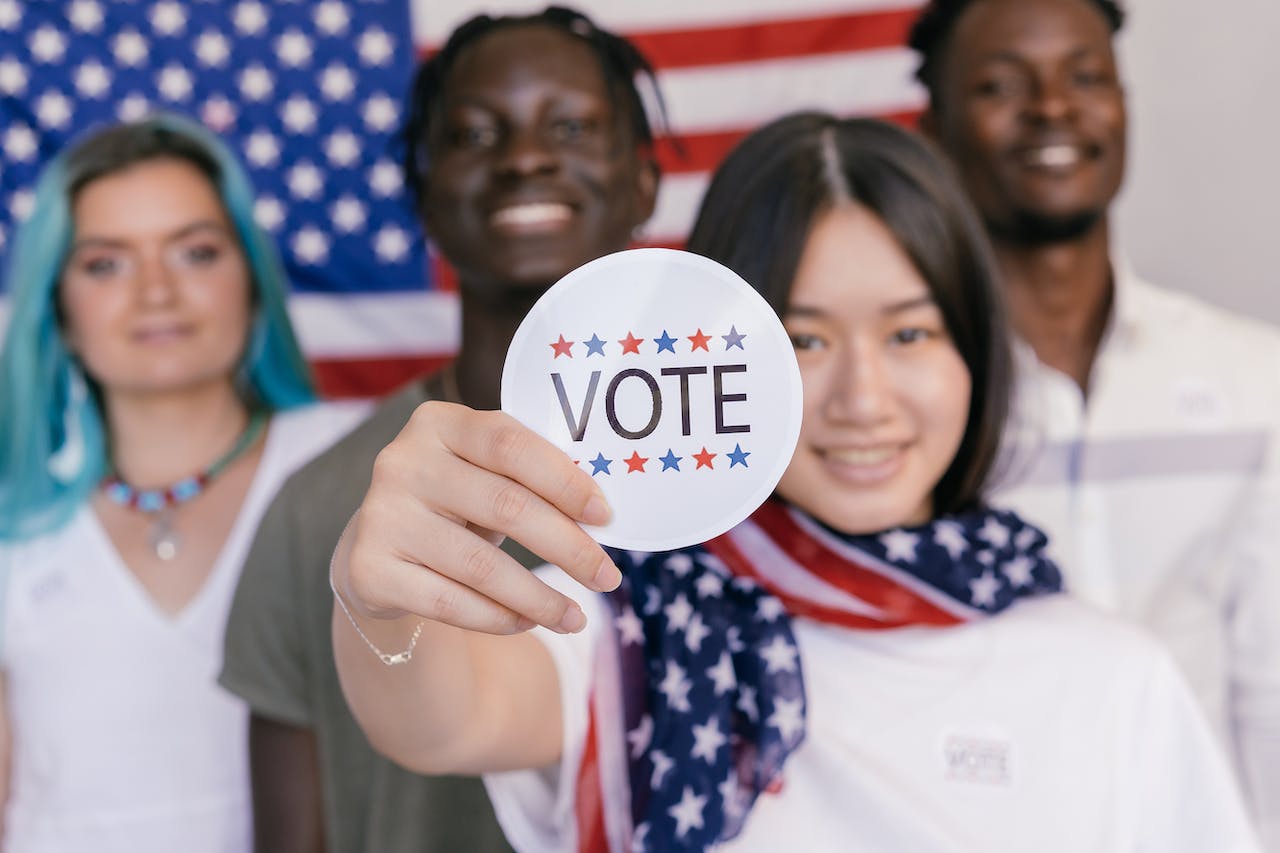By Diane Wong
January 5, 2024
We are less than one year out from the 2024 Elections and the future of the country couldn’t be more uncertain: inflation is at an all-time high, extreme climate events have devastated communities in Maui and elsewhere, there have been more mass shootings than days in the year, all the while multiple wars unfold across the globe. Data from our latest survey reveal that Gen Z voters have had enough and are expected to turn out in higher numbers for the 2024 Elections. This could mean even higher turnout rates than the historic 2020 Elections, where Gen Z voters came out in force in some battleground states. When asked about their intention to vote in the next presidential election, 56% of Black, 57% of Latinx, 72% of Asian American, and 79% of white Gen Z voters expressed plans to vote. Young people have been vocal and at the forefront of issues like racial justice, climate change, and gun violence and their vote will be critical next year.
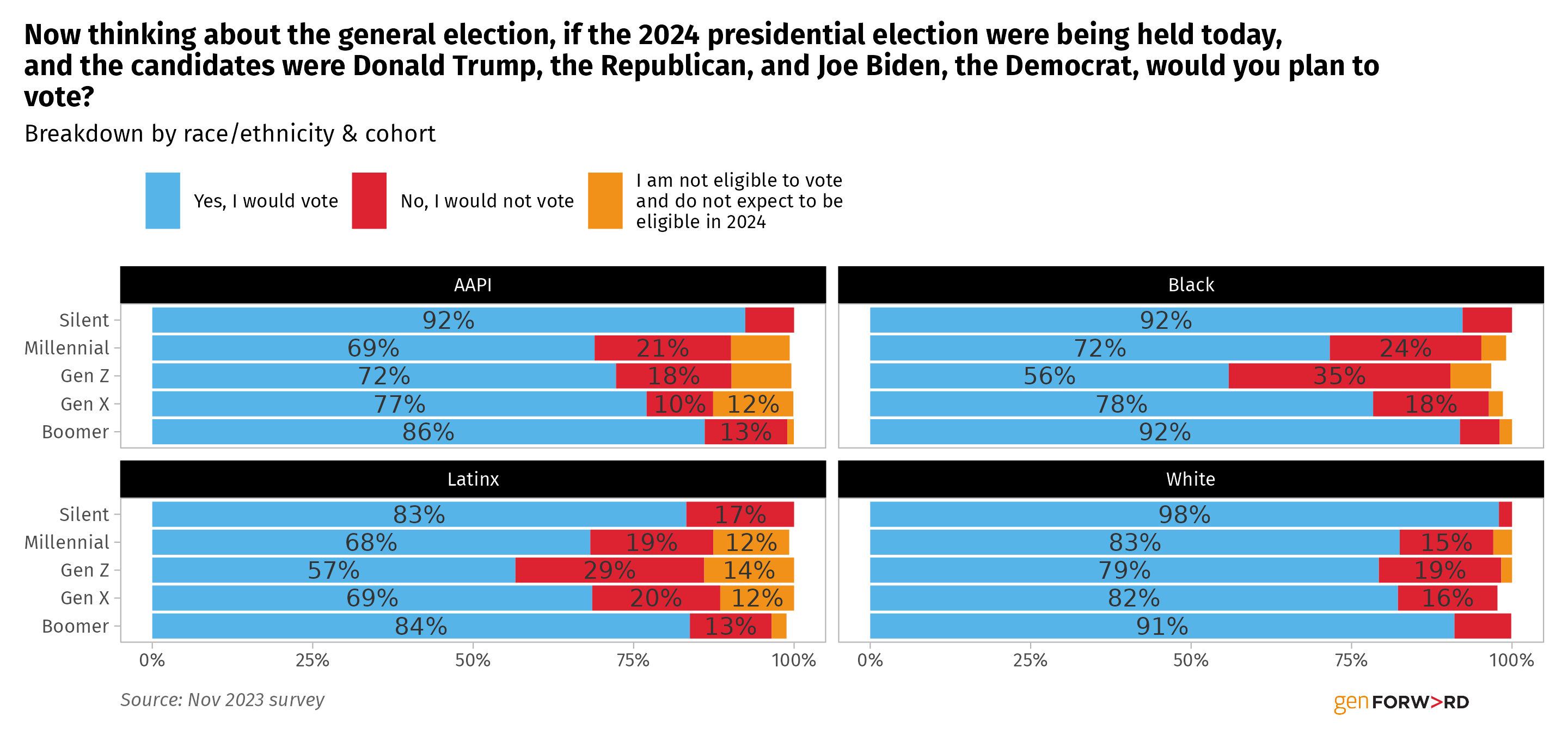
In general, Gen Z are overwhelmingly dissatisfied with the direction of the country. In fact, 60% of Black, 68% of Latinx, 54% of Asian American, and 79% of white youth believe that the country is going off on the wrong track. As candidates look to mobilize young voters ahead of November, there is one issue in particular that Gen Z voters care deeply about: inflation. When asked about the most important problems facing the country, Gen Z respondents overwhelmingly said that inflation was a top priority. Inflation has exacerbated the cost of living crisis, impacting virtually every aspect of their lives, from rising grocery and housing costs to deferring important life events like continuing their education and receiving proper health care.
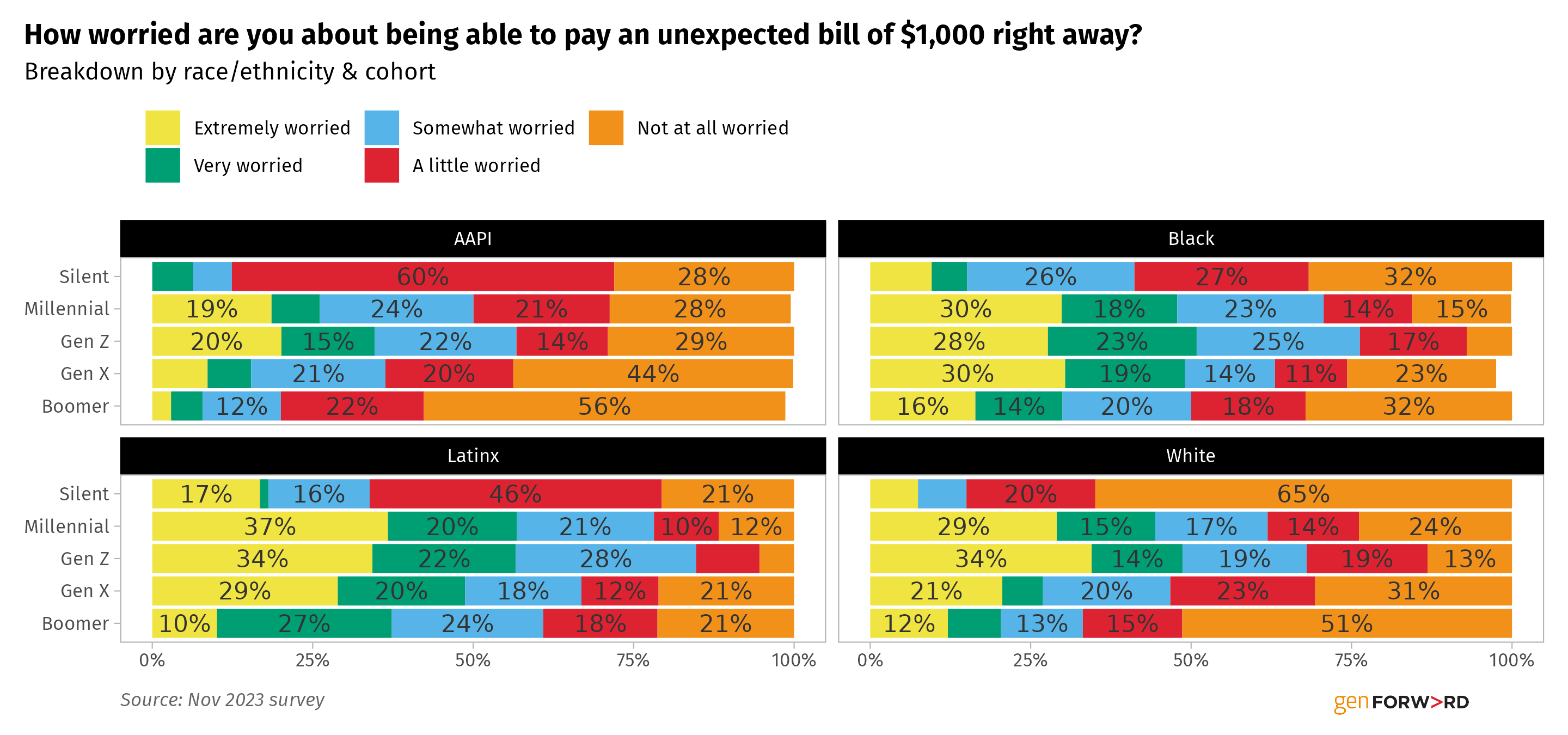
As the midterm election results revealed, abortion is another issue that will undoubtedly shape turnout at the polls. In June, the Supreme Court overturned federal protections for abortion rights in the Dobbs decision, and young voters across the country mobilized en masse to protect their reproductive rights and bodily autonomy. Gen Z and Millennials in Kansas turned out in droves to reject an amendment to the state constitution that would allow lawmakers to further restrict or ban abortion in the state. When asked about the Supreme Court decision on abortion rights, 61% of Black, 61% of Latinx, 72% of Asian American, and 67% of white Gen Z voters expressed strong disagreement. In addition, when asked whether abortion will have an impact on vote choice, 31% of Black, 33% of Latinx, 26% of Asian American, and 36% of white Gen Z voters said that they will only vote for a candidate who shares their views on abortion. Critically, the recent decisions around abortion are activating a younger generation of voters who are in favor of curtailing the power of the Supreme Court by setting term limits or adding more judges to the bench.
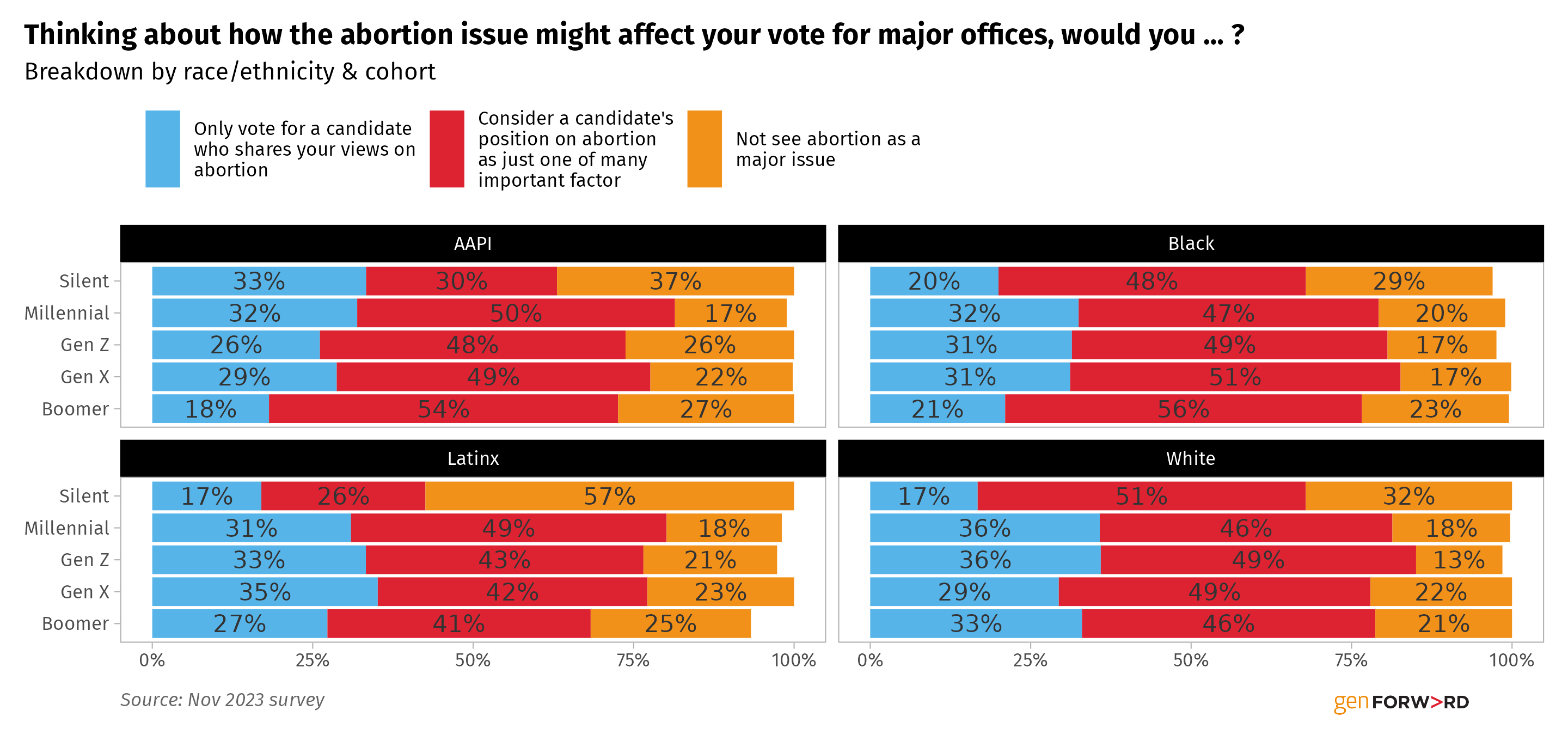
While gun violence and climate change have consistently been top priorities for young voters, our data also reveals that Gen Z voters are increasingly interested in taking control of their education and classroom curriculum. As school districts in Florida and other states are implementing book bans and curriculum restrictions, the majority of Gen Z voters believe that Republicans are pursuing these changes for political advantage. When asked whether children should learn about race and racism in US history curriculum, two-thirds of Gen Z respondents expressed that children K-12 should learn about race and racism in the classroom without any restrictions. The fight against book bans has mobilized a new generation of student activists, who are not only demanding the right to determine what they learn in the classroom but also who they want to be in the classroom with. When asked about their support for race-based affirmative action, 77% of Black, 70% of Latinx, 60% of Asian American, and 62% of white Gen Z voters expressed support for programs designed to increase the number of students of color on college campuses.
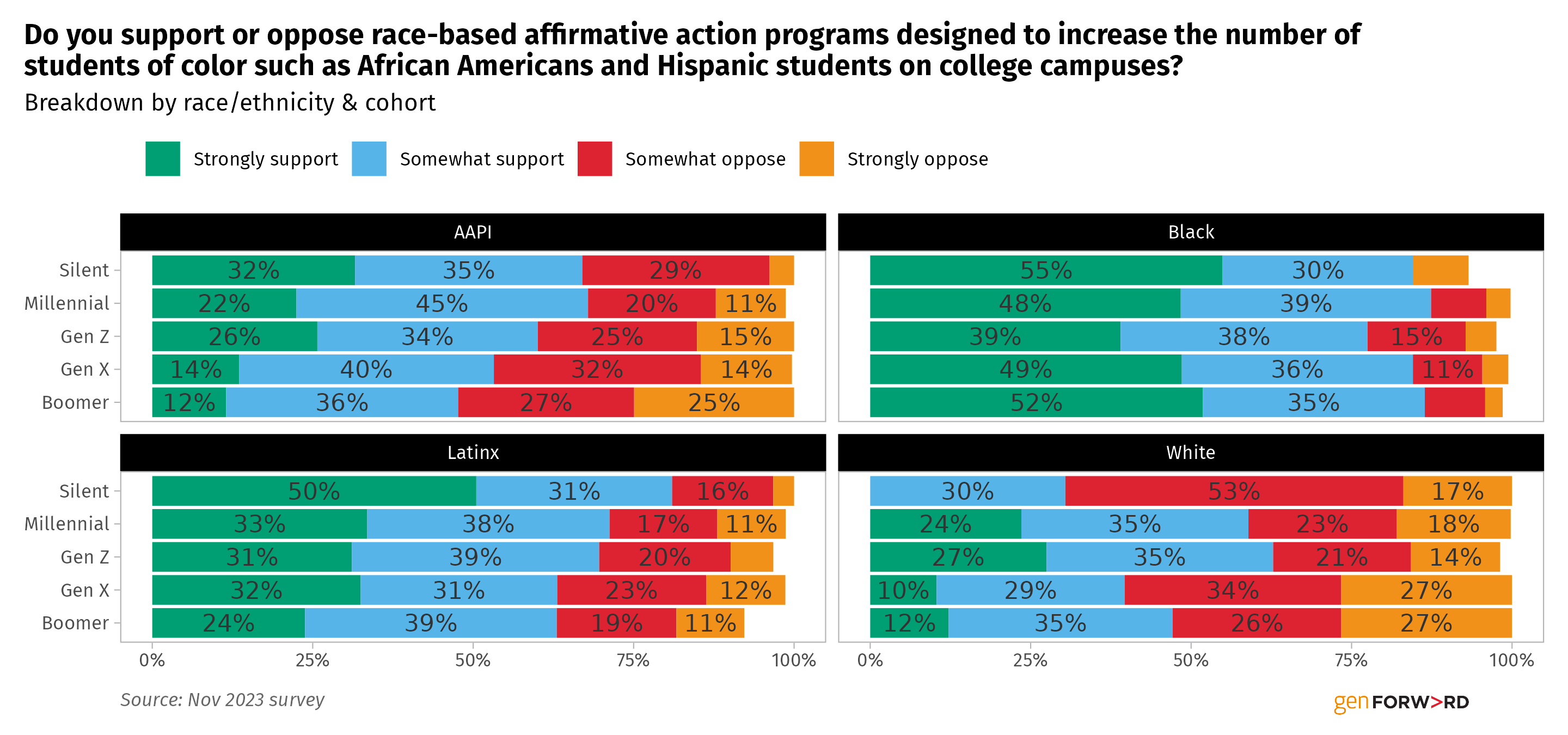
Far from being apathetic, Genforward data reveals that Gen Z voters are carefully attuned to what is going on around them and that their political choices reflect the issues that they are prioritizing for their communities. When asked about the Israel-Palestine conflict, there is a clear generational divide between support for Israel or Palestine, with nearly one third of Gen Z voters of color perceiving that the US government is not supportive enough of Palestine. Indeed, young people across the country have been taking up the streets and vocal in their opposition to the genocide happening in Gaza, which has killed more than 22,000 Palestinian people and displaced millions of others. In November, hundreds of New York City public school students organized a walkout calling for a ceasefire in Gaza, rallying outside of the New York Public Library. At campuses across the country, students are attending protests in solidarity with Palestinians and some for the very first time—igniting a surge of anti-war activism not seen since the Vietnam War. How this issue will shape the 2024 Elections is to be determined but what we know for sure is that Gen Z voters are activated and poised to make a difference come November.
The GenForward Survey is associated with the University of Chicago. The November 2023 survey responses were collected from November 8 to 20, 2023, among a nationally representative sample of 3,448 adults 18+ representing the 50 states and the District of Columbia. The overall margin of error is ±2.94 percentage points at the 95 percent confidence level.
Diane Wong is an Assistant Professor in the Department of Political Science at Rutgers University, Newark. Learn more about Diane & the GenForward researchers here.

